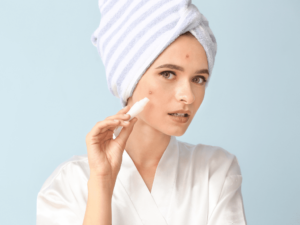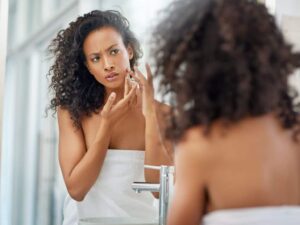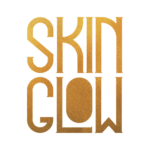For many of you, remembering your adolescent life can be so unpleasant, especially if you had a clash with acne. This probably resulted in low self-esteem, kids calling you names, and constant self-doubt. This disorder comes not only with skin scarring but, unfortunately, with a lack of confidence as well. Some of you overcame this issue, but many fight this impossible battle with acne to this day. To help you understand this severe disease, we wanted to share our knowledge, shed some light on these problems, and answer the most common questions about acne.
What is acne?
If you are struggling with acne, you probably already know that it is a skin condition that affects most adolescents and adults. Furthermore, it is not only the disorder that is causing issues; it is also unwanted scaring that comes after. Acne happens primarily on the face, but it can also appear on other oily parts of the body like the chest, the back, and even the scalp.

What causes acne?
So, you are probably wondering what causes acne? You can describe it as a combination of factors: when there is abundant skin oil production, your pores get clogged and trap dead skin cells and bacteria inside, resulting in a local infection that creates those unwanted black or white heads, pimples, cysts, or nodules. As tempting as it might be, it is crucial not to pick at these pimples because they lead to permanent scarring.
There are many ways you can get acne:
- too much stress
- hormone changes – adolescent phase
- genetics
- unhealthy diet
- infections
However, these are just the main factors that can cause acne—pollution, smoking, stress, and even steroids or wearing makeup every day can lead to clogging pores.
You are tempted to think that acne has only a physical effect on your body. Still, as studies reveal, adolescents and adults who suffer from this skin disorder tend to feel self-defeated, get high anxiety, depression, social inhibition because acne can highly affect personality.

How to treat acne at home?
There is not much scientific research and evidence that can back up any home remedies for acne. Some oils with anti-inflammatory and antibacterial natural components can be helpful, such as jojoba, thyme, cinnamon, rose, tea tree, lavender, or rosemary oils.
Garlic is also an antiseptic, antifungal, and antibacterial product that is supposed to kill acne, but you might get some painful burns if you keep it too long.
Aloe vera is on everyone’s lips when talking about its healing properties and comes up as a natural acne fighter, but that does not necessarily mean that it can help you improve your situation.
Nevertheless, a good routine and specific lifestyle changes might reduce acne and positively impact your skin. As mentioned before, do NOT touch your pimples because you might even help the infection migrate to other areas, and that is the last thing you want to do. You can also irritate your skin, make those affected areas look worse and insert even more bacteria into those areas.
Your pores need to breathe; you do not want to clog them with oils. If you are struggling with acne, it is the right moment to change your skincare products and replace them with oil-free cosmetics.

Last but not least, keep yourself hydrated. Drinking water helps skin cells regenerate, reduces skin dryness and irritation, and helps heal those awful sores.
Does food cause acne?
Many studies reveal that a healthy diet plays an essential role in the way your skin looks. Certain products can cause insulin level growth, like milk and sugary products. Your unhealthy diet can trigger hormones in your body to boost your acne.
As we previously mentioned, drinking at least 5 glasses of water per day may impact your acne outburst, but no actual studies or research backs up this statement. There is no single diet that guarantees you an acne-free life, so take moderation as your guideline.
Can retinol help with my acne?
Dermatology research says that retinoids play a huge role in solving acne problems because they are anti-inflammatory and resolve the lesions, and, most importantly, inhibit the development of comedones (pimples, black, and whiteheads). But acne doesn’t pass overnight! You need to apply the prescribed treatment with constancy, and, as weeks go by, the treatment will reinvigorate the skin, reduce the redness and the pimples, and even the scarring.
Another essential matter is tolerability to retinol products because such therapy can come with irritation, peeling, or skin dryness that is highly noticeable in the first 1-2 weeks of treatment. During this amount of time, your acne might look worse before it starts improving.

The best treatment for acne
At SkinGlow, our main bread and butter work focuses on hair and skin conditions, especially acne and scarring. Our patient’s needs and satisfaction rank the highest in our clinic, which is why we know you will be surprised by our professionalism and acne treatments.
There are several ways we approach this matter because such skin condition requires patience and qualitative treatments. The methods we use are among the best acne treatments and include microdermabrasion and hydradermabrasion, bespoke facials and chemical peels, microneedling, Mesotherapy, LED therapy, laser resurfacing, and other fractional systems and energy-based procedures. For more information, contact us to schedule a meeting or pay us a visit at 216 Kensington Park Rd, Notting Hill, London.
Microdermabrasion and hydrodermabrasion – we gently grind the skin top layer using a rotating diamond. The procedure is quite the same for hydrodermabrasion but adds water to clear your face from residuals.
Bespoke facials and chemical peels – Our cosmetical peels are different for all skin types and contain anti-inflammatory components that treat scarring and level up your skin.

Microneedling – we use this device to stimulate your skin’s collagen production. It features microscopic needles and helps reducing acne and scarring.
Mesotherapy – is a revolutionary therapy that can improve uneven skin and stimulates collagen and elastin production.
LED therapy uses a non-invasive light that helps diminishing pigmentation and acne scarring.
We also use some other energy-based procedures that use light and radiofrequency to diminish scars, laser resurfacing, and other fractional systems that also help your skin look smoother, healthier, and with less scarring caused by acne.
There are several acne treatments that you can do get rid of pimples and scars
Depending on the aggressiveness of your acne, we might need to use a combination of these procedures to achieve the best results. Our highly skilled therapists have 20 years of experience in skin problems and medicine, so you can rely on our efficiency in making your skin look brighter, acne-free, and with minimal to no scarring.





